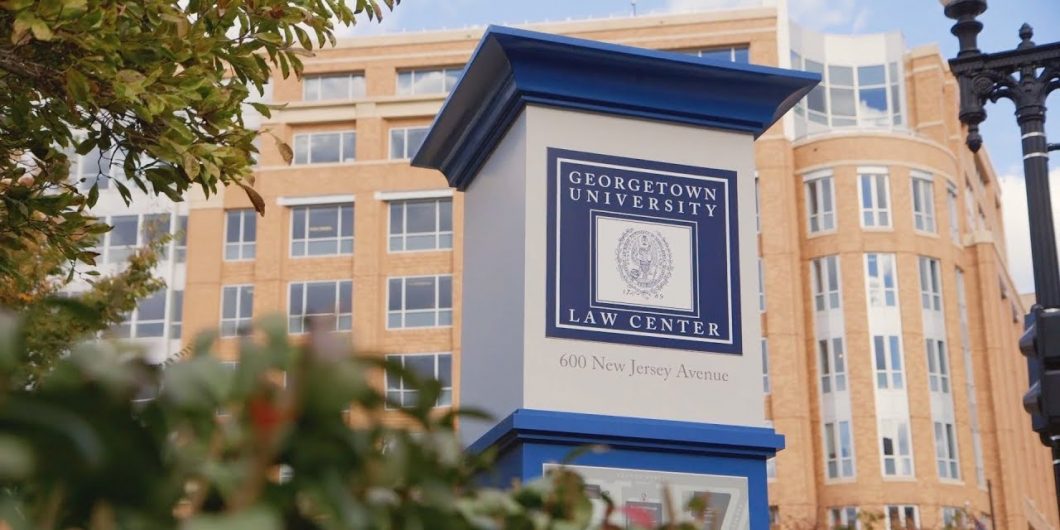Getting Originalism Wrong
The dean of Georgetown University Law Center, William Treanor, fresh from his embarrassing handling of the Ilya Shapiro debacle, has an op-ed in Slate in which he claims that the Framers “believed that courts should defer to precedent” rather than the Constitution’s original public meaning. On this basis he criticizes the conservative justices as “flawed” originalists because they have the opposite priorities, willing to overrule precedents that depart from the Constitution’s original public meaning.
This theory allows him to complain about the Supreme Court overruling Roe v. Wade in Dobbs v. Jackson Women’s Health Organization and Lemon v. Kurtzman in Kennedy v. Bremerton School District on some basis other than the one which likely truly motivates him, which is that he likes the overruled precedents better than the overruling ones.
But Treanor’s position raises many questions, the first of which is: does he believe that precedent should never be overruled? If so, we would be stuck with cases like Plessy v. Ferguson (upholding separate but equal), Korematsu v. United States (upholding the internment of people of Japanese ancestry during WWII), or Pace v. Alabama (upholding anti-miscegenation laws)—all of which were precedents for longer than Roe.
Well, no. Treanor hedges and, pointing to Plessy specifically, says that “certainly some precedents of the court should be overturned.” Which brings us to the next obvious question: what rule does the dean propose to distinguish cases, like Plessy, that should be overruled from cases, like Roe, that should not?
This is, after all, the most important question. It’s surprising, therefore, that Dean Treanor has nothing to offer. No rule, no principle, no criteria, nothing. All he knows for sure is that a “decision to overturn precedent cannot be based on a jurisprudence of original meaning.”
This creates three problems for the dean.
First, a “jurisprudence of original meaning” accomplishes the Framers’ goal of, as Alexander Hamilton wrote in Federalist 78, minimizing “arbitrary discretion in the courts” better than any alternative. As such, original meaning takes seriously the Constitution ratified by the people rather than one that judges (or law deans) might prefer. Perhaps more importantly, it provides a democratically legitimate basis on which to overrule old precedents.
The jurisprudence of original meaning, in fact, minimizes situations in which the Supreme Court must reconsider its past interpretations of the Constitution because more of those precedents will have been correctly decided. It would, for example, never have allowed Plessy to be decided as it was in the first place because Plessy was inconsistent with the Fourteenth Amendment’s original public meaning. And it would have provided a sound, principled basis to overrule Plessy even the day after it was decided on that basis.
Originalists scholars and judges debate whether Plessy violated the Fourteenth Amendment’s Privileges or Immunities Clause, Due Process Clause, Equal Protection Clause, or some combination thereof. But there is broad agreement that Plessy cannot be squared with that Amendment’s original public meaning. If the justices in the years after Plessy had weighed original meaning more heavily than a case’s precedential value, as the current originalist justices do, we would not have had to wait 58 years for Plessy to be overruled.
Dean Treanor obviously does not like some of the results that the Constitution’s original meaning produces, but his personal preferences can hardly be a valid basis for criticism, can they? You’d think not, but he offers nothing else.
Which presents the choice: do you want justices to be free to decide cases like Plessy according to their personal “arbitrary discretion,” or should they instead lean toward impartiality by following the Constitution’s original public meaning?
Second, if Plessy could not be overruled as inconsistent with the Constitution’s text, how would Treanor overrule it, given his “no jurisprudence of original meaning” position?
We can assume that Treanor, like many liberals, thinks Plessy should have been overruled because it upsets contemporary notions of justice. It certainly does, but here’s his problem: Plessy did not upset notions of justice in 1896 when it was decided.
Quite the contrary, as Historian C. Vann Woodward recounts in his work The Strange Career of Jim Crow (a book Martin Luther King, Jr., called “The Bible of the civil rights movement”), both Southern racists and Northern intellectuals believed that Plessy was the just outcome. Plessy had its critics back then, but there was far from any consensus, as there is today, that Plessy was unjust.
The problem with judging cases according to one’s subjective sense of justice is that it cannot identify decisions, like Plessy, that are objectively wrong. Originalism can because the Constitution’s original meaning provides a more objective standard than ideology does.
In the case of Plessy, the better part of a century passed before subjective attitudes agreed that it was unjust. But it was wrong as a matter of original public meaning the moment the ink dried. On that basis, which Treanor rejects, it could and should have been overruled immediately.
The third problem for Treanor is the perennial “who decides?” problem. Who decides that Plessy meets whatever standard the dean has for when it should be overruled?
Academics have the armchair luxury of acting as if they should decide, but Dean Treanor was neither alive nor a member of the majority of Supreme Court in 1896 and therefore can do nothing about Plessy. As a practical matter, the people who get to decide are the justices.
Which presents the choice: do you want justices to be free to decide cases like Plessy according to their personal “arbitrary discretion,” or should they instead lean toward impartiality by following the Constitution’s original public meaning?
If the former, you have to admit that you have no answer to terrible old cases like Plessy other than that they offend modern sensibilities. If the latter, however, you do. But you must accept that there are some old cases that you like which will have to go.
This underscores the fundamental weakness of judging judicial decisions according to something as subjective as your own political views. The great success of originalism is that it offers something that living constitutionalists never could (although they tried hard): an external constraint on judges that is more objective than any contemporary vision of justice, progressive or otherwise.
It is for precisely that reason that the jurisprudence of original meaning is, contrary to Dean Treanor, an excellent basis on which to overrule old precedents.

